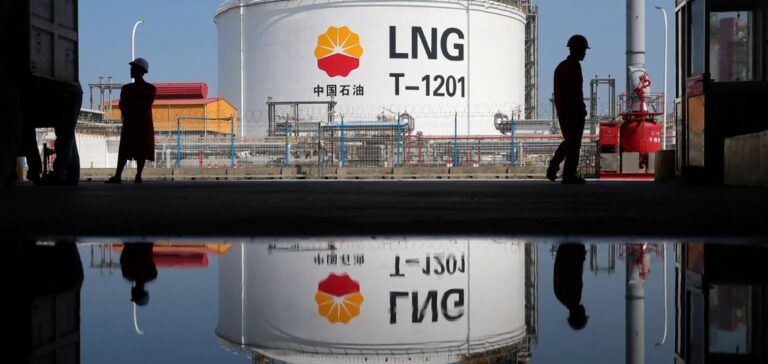Gas collaboration: UAE-based ADNOC Gas announced on Thursday that it had signed a liquefied natural gas (LNG) supply contract with China’s PetroChina, worth between $450 and $550 million.
ADNOC Gas strengthens its presence in Asia with major gas collaboration agreements in China and East Asia
The volumes supplied and the duration of the contract were not specified.
“China remains a key market for ADNOC Gas, and this agreement reinforces our role as a major LNG supplier in East and South Asia, and beyond,” ADNOC Gas CEO Ahmed Alebri said in a statement.
In August, the Emirati oil giant’s gas subsidiary ADNOC announced a similar deal with Japanese firm JAPEX, following the signing in July of a contract worth over $7 billion with India’s Indian Oil Corporation Ltd.
In May, the Emirati gas company also signed a deal worth at least a billion dollars with France’s TotalEnergies, targeting “primarily the Asian market”.
The United Arab Emirates aims to produce 15 million tonnes of liquefied natural gas (LNG) over the next few years
The United Arab Emirates produced 57 billion cubic meters of natural gas in 2021, around 1.4% of global production, while LNG exports amounted to 8.8 billion cubic meters, representing almost 1.7% of world trade, according to the BP Statistical Review of World Energy.
The Gulf country hopes to reach an annual production of 15 million tonnes in the next few years, according to Bloomberg.
ADNOC Gas began operations in January, before going public three months later in an IPO worth some $2.5 billion.
Why does it matter?
The recent signing of a contract between ADNOC Gas and PetroChina for the supply of liquefied natural gas (LNG) worth between $450 and $550 million reinforces ADNOC Gas’ position as a key LNG supplier in East and South Asia.
This collaboration reflects the growing demand for LNG in Asia, particularly in China, where the energy market continues to expand. Similar agreements with Japanese, Indian and French companies demonstrate the diversification of ADNOC Gas’ customer base and its commitment to the fast-growing Asian market.






















